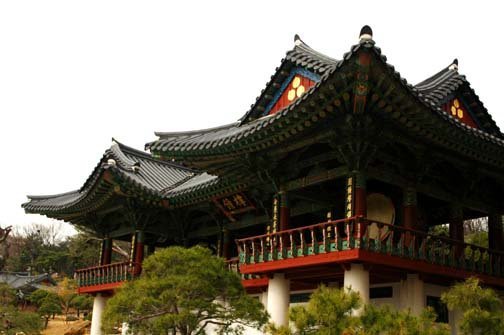Travel health: Expats in Korea

Recently Rolf posted some tips on making the transition into life as ESL teacher in Korea. But what happens after you’ve been in the country for a while and you’re starting to feel worn down by the hidden demands of teaching? Here are some great ways to relax and stay healthy while getting to know the culture better.
Gyeongdong Market – If you’re living in Seoul, or if you are planning a trip to the city, be sure to check out Gyeongdong Market. After a few hours strolling through this market each weekend, I feel relaxed and fulfilled from the pleasant and sometimes haphazard conversation with the vendors. The market is a photographer’s playground, with endless stalls of intriguing things to catch your eye. It is a good place to be reminded of the rich beauty of this country.
Gyeongdong Market supplies the country with 80% of its herbal remedy supply. Traditionally the place is a market of natural medicine and tea, but virtually anything can be found here. Buying my groceries and meats from this market each week ensures that I am getting unprocessed, chemically untouched foods. Come here to find good healthy nutrition from Korean farmers.
Jjimjilbang – These 24-hour spas may be just what you need after the stress of teaching young children all day. They never close, so you can languish in the saunas, steam rooms, and thermal pools as long as you like. For the equivalent of about US$8, you can enter these spas for up to 12 hours. Many of the spas boast indoor and outdoor pools, ginseng and rose baths, crystal salt rooms, cedar baths, and a range of pampering treatments from massages to mud packs. There is usually a common area that is little more than an expanse of heated cedar floors in case you need a rest from all of the indulgence.
Temple Stay – You can do a temple stay every single weekend in Korea if you so choose. This may be of special interest for those living in the sprawling metropolis of Seoul. Get away from the constant hum of life and spend a weekend in meditation in one of the countless temples across Korea. Reduce life to what is most basic; sit and meditate. This is also not only a beautiful way to expose yourself to something new, but a great way to get to know Korean culture a little better. Some temple stays are virtually free or, for a small price, you can make a weekend of it through different hiking groups or Meet Up.
Bungee Jumping and Skydiving – If you find that the “Additional Responsibilities” clause of your contract has you working upwards of 40-50 hours, rather than your contractual 30, you may need to let off a bit of steam. Are you overworked and miserable and feeling like you want to just off yourself? Why don’t you go jump off a cliff? No, seriously. Bungee jumping, and skydiving abounds in Korea. Skydiving may be a little more expensive than what you would pay back in the States, but there is no shortage of opportunities. For bungee jumpers, join a group of jumpers on Adventure Korea, or just head to Yuldong Park in Bundang where there is a bungee platform and people can jump for around 25,000won.

April 13th, 2010 at 7:59 am
These are great tips. Just climbing up Bukhansan or a similar mountain and breathing slightly cleaner air can really help as well. Also, noraebong seems to help. Lots and lots of noraebong.
April 16th, 2010 at 2:15 am
Korean spas are a must, too! Definitely an effective way to relax and revitalize. You come out feeling like a new person. Tara and I actually just wrote about our experience (notably the full-body scrubs) at a Korean spa/bathhouse in Chicago here: https://taraandkarinagoout.com/2010/04/12/a-korean-day-spa/
-Karina